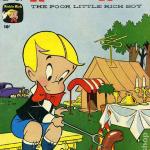In what follows, I’ve pasted an excerpt from an article by Lisa Sharon Harper. She is the co-author of a book I’ve reviewed here on the blog called: Left, Right and Christ: Evangelical Faith in Politics. Check out my review to understand her perspective a bit more.
Excerpt from Q, written by Lisa Sharon Harper:
A Call to Transform Politics
Someone asked me recently what I thought of something “as a member of the Christian Left.” My insides tightened and screeched into a ball. It was as if Freddy Krueger had run his sharpened fingernails across the black board in history class. Christian Left? Left of what? When did I sign that membership card?
Maybe it’s the title of my last book, Left, Right and Christ: Evangelical Faith in Politics, which was co-written with a Tea-Partier who is also an evangelical Christian. The book does frame me as the one on the left, but if you read my chapters you’ll see that is not my mind or my heart.
In times like these, when politicians are sweating to sway voters to their side, or frame their opponents as the polar opposite—the enemy—it is tempting to begin to define ourselves and each other through the frame of politics. We place each other in convenient little political boxes—boxes not made by scripture or the church, but by politicians and the media.
The political “left” and “right,” Dems and GOPers, Progressives and Conservatives claim to stand on fixed points of impervious truth on a linear spectrum that stretches across a horizontal plane from pole to pole. The spectrum’s fixed middle marks the permanent philosophical and political “center.” And, politicians conveniently cry that political party is synonymous with political philosophy. It does not work this way and has never worked this way. Rather politics’ center point is mercurial and its far left and right philosophical boundaries move with the ages. Parties and platforms flip philosophies and shape-shift to match the ethos of the age….
….The sands of politics and political philosophy shift with the ages. One can anchor herself to political philosophy and find herself in the party of “the enemy” within one generation. Conversely, one can anchor himself to a political party and find his philosophical and theological convictions compromised within one election cycle.
So, I reject the moniker “Christian Left”. It is a moniker drawn in hasty response to the “Religious Right” a political movement (not a theological one). I do not set the standards of my political engagement in response to some random political point on a line. No. Rather than anchoring my politics on the shifting sand of a linear continuum, I ask a higher question: “What is my axis?” What does my political engagement revolve around? Is it political ideology? Is it political party? Is it biblical theology? I choose the latter…. Read the rest of this article here.
Question: In political dialogues that you’ve had recently, what seems to shape the conversation? Political presuppositions? Biblical Theology? Constitution? Other?
















